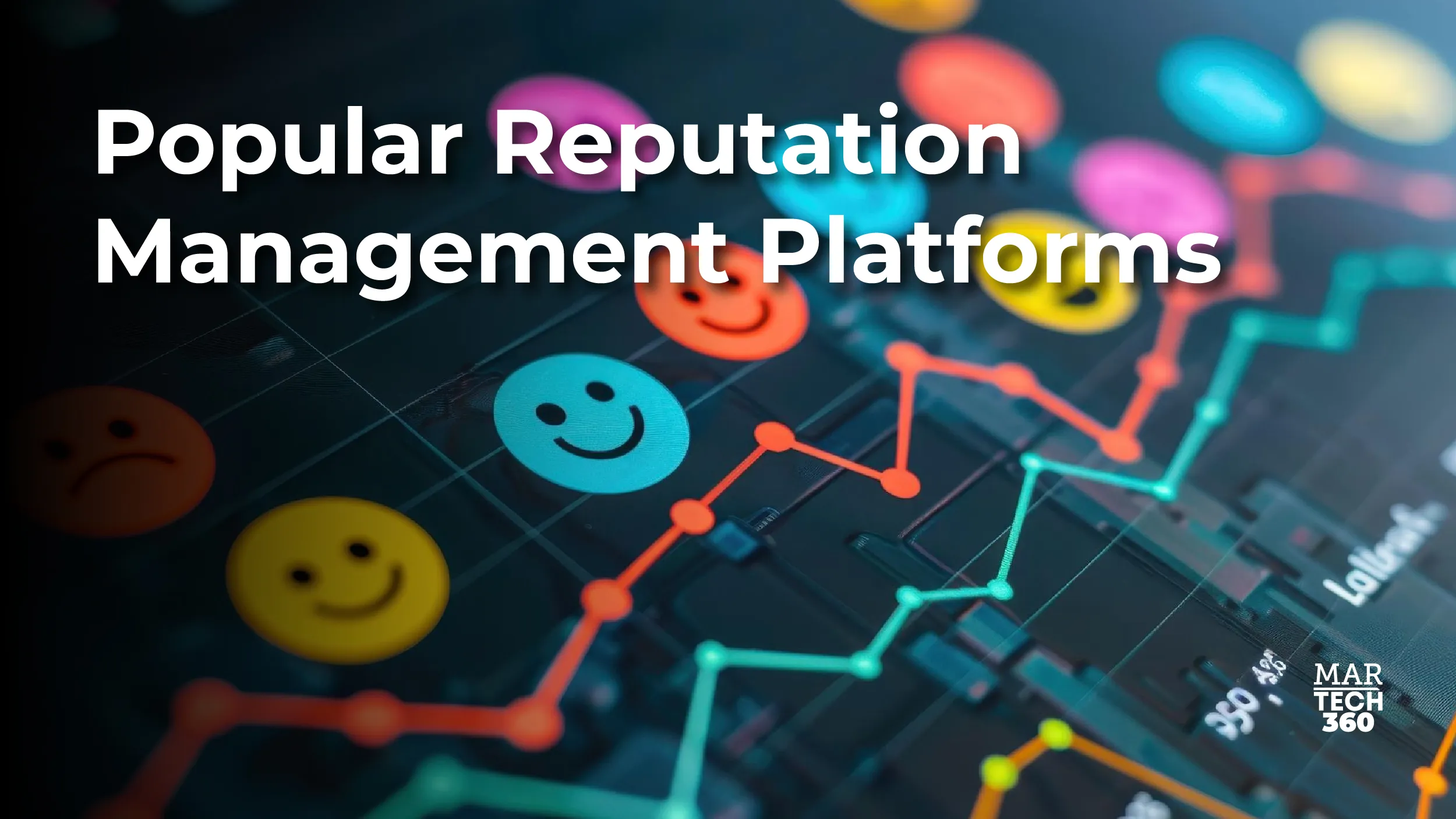In today’s interconnected realm, the reputation of a brand is its key strength. Whether you’re the owner of a small company or managing a multinational corporation holding a good reputation is of utmost importance. This is where reputation management platforms play a major role. These tools allow businesses to supervise, manage, and improve their digital footprint, making sure that they anticipate challenges beforehand and benefit from widespread approval. In this article, we will take a look at the variations of reputation management platforms, their advantages, and strategic measures to combine them into your business operations efficiently.
The Importance of Reputation Management
In a world where customers often depend on online feedbacks and social media to make product selections, reputation can make or break a business. According to a BrightLocal survey, 87% of consumers read online reviews for local enterprises, with 79% trusting them as much as individual suggestions. Negative feedback or false information, if left unchecked, can deteriorate the brand’s reputation and remarkably affect customer trust and income.
Why Reputation Management Matters:
- Trust Building: A renowned status builds trust among customers, shareholders, and employees.
- Competitive Advantage: Businesses with strong reputations can charge high prices and secure top performers.
- Crisis Mitigation: Promptly managing detrimental feedback prevents minor issues from conveting into full-scale disasters.
- Improved Search Rankings: Positive responses and mentions improve SEO, enhancing online presence.
What Are Reputation Management Platforms?
Reputation management platforms are application programs specially made for businesses to observe their online visibility, collect feedbacks from customers, and address reviews. These tools provide live updates on impression of a brand and provide companies with the resources to manage their online presence productively.
Key Features of Reputation Management Platforms:
- Review Monitoring: Comprehensive reviews from platforms like Google, Yelp, and Trustpilot.
- Sentiment Analysis: Uses AI to measure the tone of customer reviews.
- Social Listening: Tracks brand citations across social media platforms.
- Automated Responses: Provides standardized replies for common complaints from customers.
- Analytics Dashboard: Offers information-driven insights into brand accomplishments and areas for refinement.
Top Benefits of Reputation Management Platforms
- Enhanced Customer Insights
Reputation management platforms collect and evaluate customer insights, giving businesses a clearer vision of their strong suits and areas that need to be worked on. For example, if several reviews emphasize slow customer service, this indicates a functional problem that needs instant attention.
- Real-Time Monitoring
These tools provide real-time notifications whenever your brand is highlighted online. This feature is specifically beneficial for taking actions on negative feedback, restraining it from turning into a bigger concern.
- Improved Customer Engagement
By responding to reviews and comments immediately, businesses can show that they prioritize customer feedback. This level of confrontation not only settles issues but also boosts customer loyalty.
- Streamlined Crisis Management
Reputation management platforms often comprise tools to manage crisis efficiently. For instance, during a PR mishap, businesses can use these tools to observe public opinion, respond aptly, and lessen the impact.
- Boosted Revenue
Studies show that one star boost on platforms like Yelp can lead to a 5-9% rise in revenue. A solid reputation management strategy secures consistency in positive feedback, having a direct financial effect.
Also Read: CMO’s Playbook to Brand Affinity
Popular Reputation Management Platforms

- Birdeye
Birdeye is an all-inclusive platform providing feedback control, customer feedback tools, and social listening, and. One of its key features is its potential to compile reviews from several different sources, including Google, Facebook, and sector-specific platforms, providing a comprehensive overview of customer perspectives. Businesses can also use its automated feedback request feature, making it effortless to gather inputs from customers. An eminent use case involves an average-sized dental clinic that used Birdeye to simplify the process of gathering patient feedback. Within six months, the clinic saw a 40% hike in positive responses and a remarkable improvement in patient satisfaction, due to useful findings derived from Birdeye’s analytics tools. It’s ideal for businesses looking to improve their online visibility and engage with customers responsively.
- Reputation.com
Designed for large corporations, Reputation.com provides cutting-edge analytics and AI-driven insights. For instance, a global retail chain used Reputation.com to compile reviews from over 500 locations, understand frequent customer queries, and execute practical changes. Within a year, the company saw a 20% increase in positive feedback and enhanced customer satisfaction scores, depicting the platform’s effectuality in managing substantial reputation challenges. It is a reliable solution for organizations seeking a data-driven approach to reputation management.
- Yext
Yext focuses on local businesses, helping them retain precise business information across platforms. For instance, a family-owned restaurant chain used Yext to modify their address, phone number, and operating hours across numerous platforms like Google Maps, Yelp, and Facebook. As a result, they witnessed a 25% increase in foot traffic and a major increase in online visibility, specifically among customers searching for dining options nearby. Yext’s tools made sure that their information remained consistent and easy to access, which provided direct input to strengthen customer trust and. Its feedback-gathering and tracking features are especially popular among small firms.
- Hootsuite Insights
While essentially known as a social media management tool, Hoot suite Insights also offers advanced social listening features, allowing brands to monitor mentions and manage their digital presence efficiently. One of its major strengths lies in its effortless incorporation with other platforms like Salesforce and Slack, enabling teams to simplify communication and act promptly on rising trends or issues. For instance, a marketing agency influenced Hootsuite Insights’ merging with Slack to receive live alerts about brand mentions. This enabled the team to respond instantly to inquiries from customers on social media, resulting in a 30% enhancement in response time and improved satisfaction of customers. Such integrations make Hootsuite Insights a flexible tool for businesses aiming to consolidate their reputation management attempts.
- Trustpilot
A primary platform for collecting and displaying reviews of customers, Trustpilot is ideal e-commerce companies seeking to build trust through clear customer insights.
Implementing an Effective Reputation Management Strategy
- Monitor Regularly
Set up alerts to track brand citations, reviews, and feedback. Tools like Google Alerts and the previously mentioned platforms make sure you’re always in the loop.
- Engage Actively
Rapidly respond to reviews, whether positive or negative. Appreciate customer feedback, appreciate praise, and address concerns promptly.
- Encourage Positive Reviews
Satisfied customers often don’t share feedback unless prompted to do the same. Initiate movements to seek opinions, such as emails for follow-up after purchase or offering encouragement for genuine reviews.
- Leverage Analytics
Use data-driven insights from reputation management platforms to identify trends and areas for enhancement. For example, persistent dip in ratings after a product launch could highlight problems with the latest offerings.
- Train Your Team
Making sure that employees understand the significance of reputation management have the provision to handle customer interactions efficiently. Empower your team to resolve issues before they increase.
Challenges in Reputation Management

- Fake Reviews
The rise of forged reviews poses a major obstacle. Businesses must closely watch and report deceptive feedback to maintain authenticity.
- Balancing Automation and Personalization
While automation tools are effective, generalized feedback can come across as fake. Strive for a balance by customizing responses to evaluative feedback.
- Crisis Management
Handling a reputation emergency requires a methodical strategy. A sole blunder can aggravate the situation, emphasizing the need for preparedness and proficiency.
Real-World Example: Starbucks
Starbucks is a major example of impactful brand management. When faced with a PR crisis in 2018, the company rapidly addressed the issue by making a public apology, executing training programs, and demonstrating its dedication to diversity. Their preventive approach not only weakened the crisis but also strengthened their brand values.
The Future of Reputation Management Platforms
As technology continues to evolve, so does the capability of reputation management platforms. Artificial intelligence and machine learning are expected to play a more remarkable role, facilitating even more precise sentiment analysis and anticipated outcomes. In addition to this, merging with customer relationship management (CRM) systems will allow businesses to offer effortless customer experience while managing their reputation efficiently.
Emerging trends such as block chain technology may also impact the reputation management space by ensuring visibility and originality in customer reviews.
Final Thoughts
Reputation management platforms are no longer considered an option in today’s online-centric world. They are necessary tools for protecting your brand, building trust, and driving business growth. By investing in the right platform and executing a strong strategy, businesses can stay ahead of the competition and flourish in a this competitive marketplace.
As the saying goes, “Your brand is what people say about you when you’re not in the room.” Make sure they’re saying the right things.


Comments are closed.